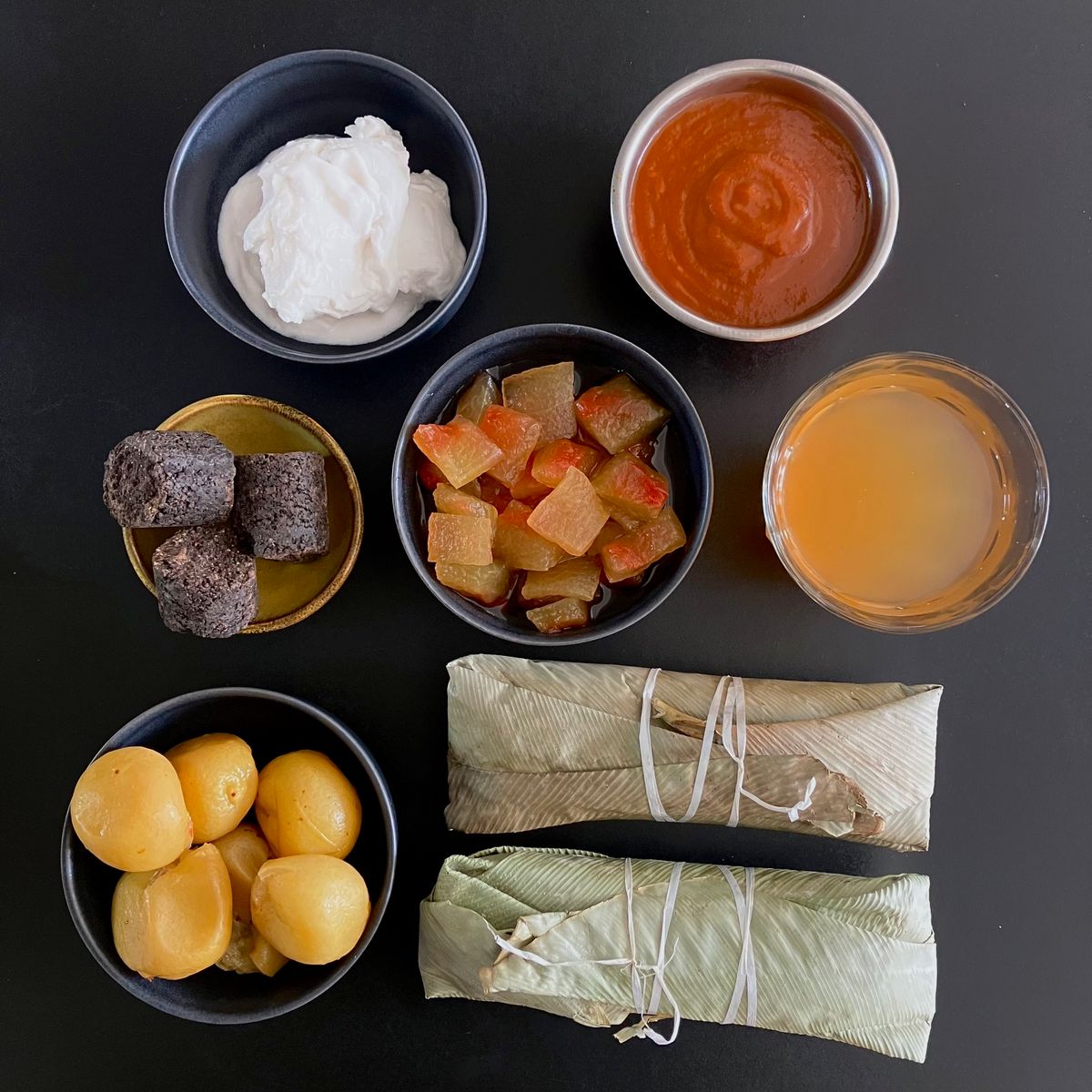Food should be medicine; medicine should be food. - African proverb.
Fermenting Knowledge
What is fermentation?
Fermentation is a natural process where microorganisms like bacteria, fungi, or yeast break down sugars and starch in food. The process helps to enhance flavour, extend the life, and increase the nutritional value of foods.
For example, fermented milk can be made into butter, yoghurt, cheese, etc which last longer than fresh milk). Fermentation was one of the first methods humans used to preserve food before refrigeration, pasteurisation, and canning were invented.
Types of fermentation include 'wild fermentation' and 'culture fermentation'. In wild fermentation, microorganisms already in the environment cause food to ferment. For example, injera, the Ethiopian flatbread, ferments due to wild yeast in the environment and the natural yeast within teff flour. Culture fermentation uses a 'starter' to ferment foods. Fermenters sometimes use some of a previous ferment to start a new batch (Also, known as 'backslopping'). For example, when making ginger beer. Methods of fermentation include smoking, curing, brining.
Health Benefits
Fermentation has been part of human diets for thousands of years. It has many health benefits including:
- It removes the unwanted or harmful properties of raw materials.
- The presence of microorganisms enhances the nutritional content of food. This includes both producing more vitamins and minerals and making them more available for our bodies to absorb.
- Most fermented foods contribute bacteria that have a potential probiotic effect. This means that these bacteria may help restore the balance of bacteria in your gut, support digestive health, and relieve digestive issues.
- Consuming fermented food has also been linked to lower risk of heart disease and high blood pressure; plus, improved cholesterol levels, and weight loss.
- Fermented foods can also help support your immune system, reducing your risk of infection.
Fermenting & Diaspora
There are over 5000 different fermented foods consumed globally. Across Africa and African diaspora there are rich traditions of fermentation. The earliest example of spontaneously fermented milk dates from 10,000BCE in North Africa. Experts believe that Africa may have the richest variety of lactic acid fermented foods.
The Transatlantic Slave Trade and globalisation have had profound impacts on the fermenting traditions of Africa and the diaspora. For example, commercial rum production has links to indigenous Caribbeans, as well as the traditions of enslaved Africans, and Europeans. This project aims to explore the wealth of African and diasporan fermentation practices, old and new.
Below are some of the ferments we have found locally in south London. Clockwise from top: amasi (South Africa), pickled watermelon rind (North America), harissa (North Africa), tej (East Africa), kwanga (Central Africa), lhamd msayer (North Africa), and natural chocolate (Caribbean).

Fermenting & Cost-of-Living
Fermenting has traditionally been a way to preserve food. Making foods last longer can help save money. In these tough times, we’re all looking for ways spend less on food while still enjoying a tasty, healthy food. Fermenting also increases the nutritional value of foods. Win-win.
The ferments we have collected are from across the African diaspora and are available in London. Some, you can buy in African and diasporan food stores. Some, you can make yourself. Either way, you don’t have to spend lots of money on fermented foods.
The fermented products we are sharing here already a play an essential part of African and diasporan food culture. By bringing them together, we want to celebrate what we already have available to us. These may be fermented foods you may already be enjoying, have forgotten about, or never tried. Whichever way, enjoy!